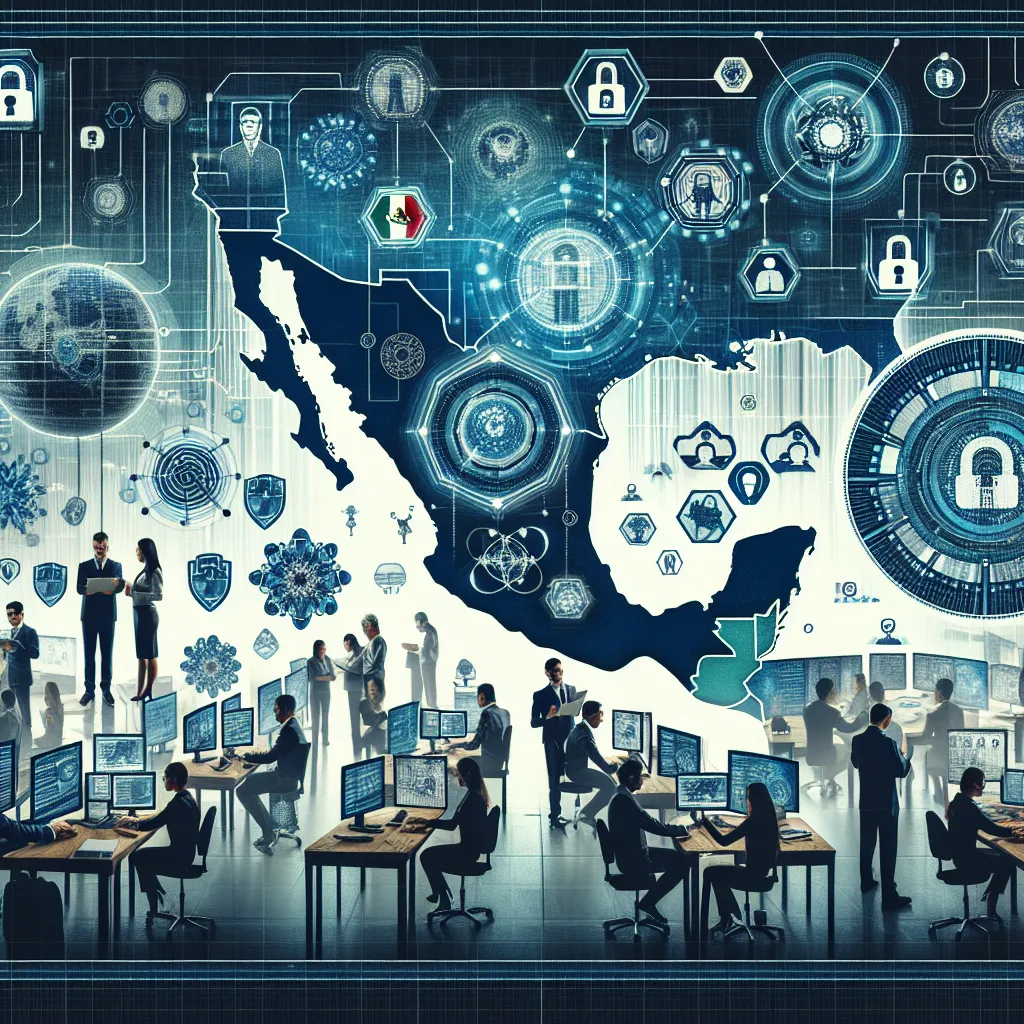A Comprehensive Guide to the Cyber Security Program in Mexico
A Comprehensive Guide to the Cyber Security Program in Mexico
In today’s digital age, cyber threats pose a significant risk to individuals, businesses, and governments worldwide. As technology advances, so does the sophistication of cyber attacks. To combat this growing concern, countries around the world are implementing robust cyber security programs to protect their citizens, critical infrastructure, and sensitive data. In Mexico, a comprehensive cyber security program has been developed to safeguard the nation from cyber threats. This article will delve into the various aspects of the cyber security program in Mexico, its objectives, initiatives, and the challenges faced in its implementation.
Overview of Mexico’s Cyber Security Program
Mexico’s cyber security program is designed to create a secure and resilient cyber space that promotes economic growth, protects national security, and ensures the privacy of its citizens. The program focuses on building a strong cyber defense system, enhancing cyber crime prevention, fostering international cooperation, and promoting cyber security education and awareness.
Objectives of Mexico’s Cyber Security Program
The primary objectives of Mexico’s cyber security program include:
- Protecting critical infrastructure: The program aims to safeguard the country’s critical infrastructure, including energy, transportation, finance, and healthcare sectors, from cyber threats.
- Preventing cyber crime: Mexico is committed to combating cyber crime by strengthening its legal framework, improving law enforcement capabilities, and enhancing international cooperation to investigate and prosecute cyber criminals.
- Ensuring national security: The cyber security program plays a crucial role in preserving Mexico’s national security by defending against cyber attacks that may target government systems and sensitive information.
- Promoting international cooperation: Mexico actively collaborates with other countries and international organizations to share information, best practices, and intelligence regarding cyber threats, thereby strengthening global cyber security efforts.
- Enhancing cyber security education: The program focuses on creating awareness about cyber threats, promoting responsible online behavior, and providing cyber security training and education to individuals, businesses, and government entities.
Initiatives and Measures
Mexico has implemented several initiatives and measures as part of its cyber security program. These include:
1. National Cybersecurity Strategy
The National Cybersecurity Strategy of Mexico serves as a roadmap for the country’s cyber security efforts. It outlines the key areas of focus, strategic objectives, and action plans to enhance cyber security across various sectors.
2. Cybersecurity Incident Response Team (CSIRT)
Mexico has established a national CSIRT to respond to cyber incidents, coordinate information sharing, provide incident response assistance, and facilitate collaboration among various stakeholders. The CSIRT plays a crucial role in mitigating the impact of cyber attacks and ensuring a coordinated response.
3. Legal Framework
Mexico has enacted laws and regulations to address cyber crime, data privacy, and information security. These legal frameworks provide a basis for prosecuting cyber criminals and protecting individuals’ privacy rights in the digital realm.
4. Public-Private Partnerships
Mexico recognizes the importance of public-private partnerships in strengthening cyber security. The government collaborates with private sector organizations, academia, and civil society to share information, exchange expertise, and collectively address cyber threats.
5. Cybersecurity Awareness Campaigns
The cyber security program in Mexico includes extensive awareness campaigns to educate individuals, businesses, and government entities about the risks associated with cyber threats. These campaigns aim to promote responsible online behavior, emphasize the importance of strong passwords, and raise awareness about common cyber attack techniques.
Challenges in Implementing the Cyber Security Program
While Mexico’s cyber security program has made significant progress, it also faces certain challenges in its implementation:
1. Lack of Awareness
Despite awareness campaigns, many individuals and organizations in Mexico still lack awareness about cyber threats and preventive measures. Bridging this awareness gap remains a challenge for the cyber security program.
2. Limited Resources
Allocating sufficient resources, including funding, skilled personnel, and advanced technology, is essential for an effective cyber security program. Mexico faces resource constraints that can hinder the implementation of certain initiatives.
3. Evolving Threat Landscape
Cyber threats are constantly evolving, and new attack techniques emerge regularly. Mexico’s cyber security program needs to stay ahead of these evolving threats and adapt its strategies and technologies accordingly.
4. International Cooperation
Cyber threats are not confined to national boundaries, and international cooperation is crucial to combat them effectively. Mexico faces challenges in coordinating efforts with other countries due to differences in legal frameworks, information sharing mechanisms, and jurisdictional issues.
Conclusion
Mexico’s cyber security program plays a vital role in safeguarding the nation from cyber threats and ensuring a secure digital environment. With its comprehensive strategy, initiatives, and collaborations, Mexico is actively working towards strengthening its cyber defense capabilities, preventing cyber crime, and promoting cyber security education. However, the program also faces challenges, such as lack of awareness, limited resources, and the ever-evolving threat landscape. By addressing these challenges and continuing to invest in cyber security, Mexico can further enhance its cyber resilience and protect its citizens, businesses, and critical infrastructure from the growing cyber threats that characterize the digital age.

